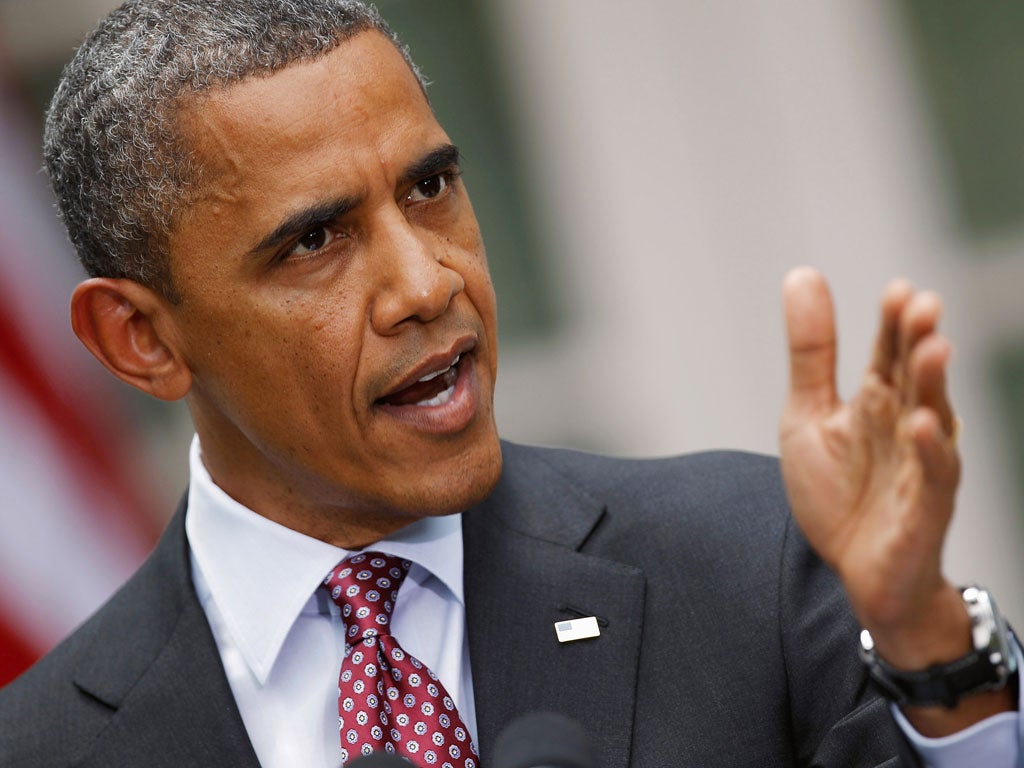The Obama I know
My long-time colleague and friend always focused on policy, not politics. President Barack Obama is a good man in a crisis and a great leader for better times

During my three-and-a-half years in the Obama administration, I was privileged to be present when the President made a number of important decisions. As the election approaches, two of those stand out.
It is March 2009. The futures of General Motors and Chrysler are at stake. Battered by the economy and their own mistakes, they need billions of dollars in federal money to survive. Those inside the administration are sharply divided. Outside, many people are arguing vociferously in favour of bankruptcy and against additional federal aid. The sceptics include the 2012 Republican presidential candidate Mitt Romney.
In the internal discussion, the President makes sure that he has elicited all the competing arguments. He decides in favour of a financial aid package, combined with strict time limits and conditions. He emphasises the centrality of the automobile industry to the US economy – and the importance of preserving countless jobs.
It is September 2010. The Environmental Protection Agency (EPA) seeks to finalise an air pollution rule that would significantly increase the stringency of controls on ozone emissions. Those inside the administration are sharply divided. Outside, many people are arguing vociferously in favour of finalising the rule. The advocates include many environmentalists who have been strongly supportive of President Obama.
In the internal discussion, the President makes sure that he has elicited all the competing arguments. He decides to direct me to tell the EPA that he does not support finalising the ozone rule. He emphasises the importance of avoiding regulatory uncertainty, especially in an economically challenging time, and the recent issuance of other environmental regulations to reduce air pollution, including ozone emissions.
In 2008, I wrote an article, “The Obama I Know”, describing my long-time friend and colleague from the University of Chicago Law School. I emphasised his independence of mind, his ability to listen, and his insistence on going wherever reason takes him. These characteristics were certainly on clear display during the discussions of the auto bailout and the ozone rule. Steady and calm, he focused only on the policy, not the politics. Of course both decisions were exceptionally controversial. And both of them were exactly right.
Historians will devote countless pages to the remarkable achievements of the first term of the Obama administration – the painstaking work in rescuing the US automobile industry; the stimulus package that saved more than a million jobs and helped to avert a depression; health care reform; the ending of the discriminatory policy against gays in the military; fuel economy rules that will save consumers billions of dollars and promote energy security; Wall Street reform to protect consumers and reduce the risk of another financial meltdown; an innovative “race to the top” programme, now improving educational outcomes all over the United States; an unprecedented government-wide review of regulations on the books, designed to streamline and eliminate unduly costly rules and requirements.
In the domestic sphere, all this is just the tip of the iceberg. And it doesn’t even include the killing of Osama Bin Laden, the ending of the war in Iraq, and the dramatic improvement in the relations between the United States and the rest of the world.
The long list of achievements raises an obvious question: Why don’t the polls show that President Obama will win in a landslide? The best answer is also obvious: Whenever the economy is struggling, and whenever the unemployment rate is high, no incumbent president can escape a tough re-election fight.
Political scientists Christopher Achen and Larry Bartels have shown that in the 20th century, presidents have frequently been punished for misfortunes for which they cannot fairly be held responsible, including drought, flu, and even shark attacks. Through careful statistical analysis, they find that “ whenever voters are in pain, they will punish the incumbent government, as long as some more or less plausible cultural understanding connects the pain with the government”. Even with 32 consecutive months of private-sector job growth, many voters will inevitably give serious consideration to the opposing party while people continue to suffer the effects of the worst economic crisis since the Depression.
In terms of self-marketing, the Republican Party has of course been exceedingly skilful, not least by utterly refusing its co-operation. The intransigence started early. In 2010, Senate Majority Leader Mitch McConnell made his party’s priorities crystal clear, stating, “The single most important thing we want to achieve is for President Obama to be a one-term president.” Consistent with that goal, Republicans blocked sensible proposals, like the American Jobs Act, that borrowed several ideas directly from Republican thinking, and that would have done a lot of good for the economy. They seemed to have a motto: Whatever President Obama was for, they were against (even if they had been for it the day before). In terms of Senator McConnell’s central goal, this approach may have some advantages.
Of course it is true that progressive groups have not got everything they wanted. President Obama has balanced a set of competing considerations rather than followed any orthodoxy. The frustrations of the business community, which has benefited enormously from Obama’s policies, could not have been avoided by a president who listens carefully to all sides.
In light of the economic and political background, a sharply contested election was inevitable. But since January 2009, the US has been on a steady, sustained path toward economic recovery. There is every reason to think that future historians will be struck, above all, by the contrast between the overheated presidential campaign of 2012 and the strong and principled foundations that President Obama built in the preceding four years.

Join our commenting forum
Join thought-provoking conversations, follow other Independent readers and see their replies